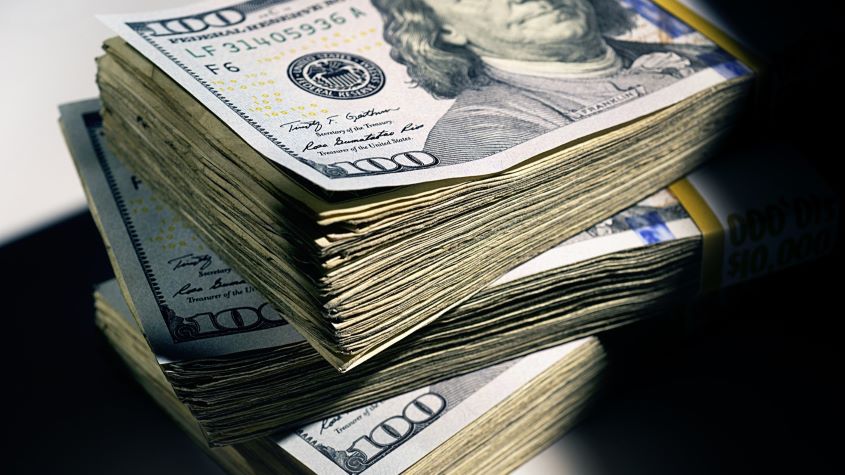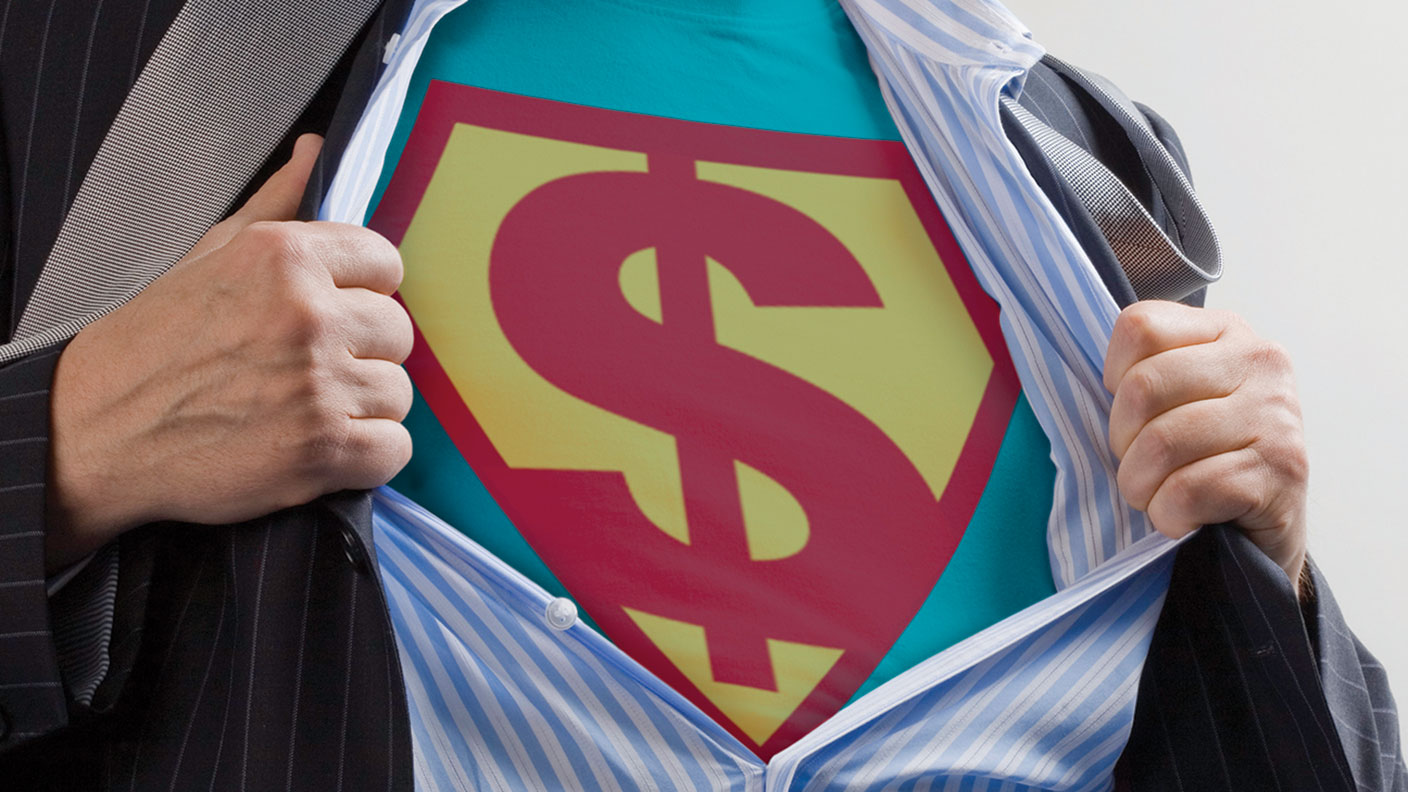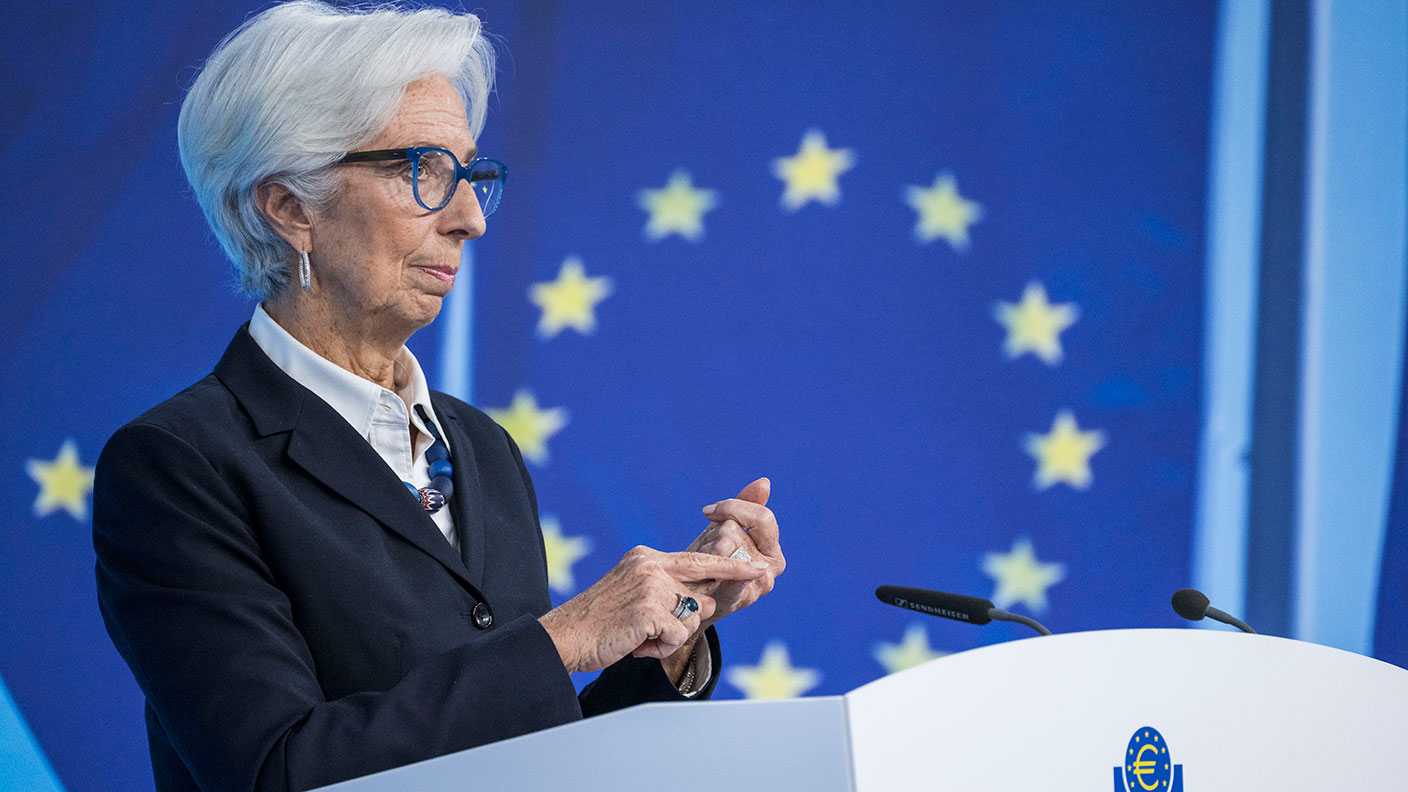Get the latest financial news, insights and expert analysis from our award-winning MoneyWeek team, to help you understand what really matters when it comes to your finances.
You are now subscribed
Your newsletter sign-up was successful
Want to add more newsletters?

Twice daily
MoneyWeek
Get the latest financial news, insights and expert analysis from our award-winning MoneyWeek team, to help you understand what really matters when it comes to your finances.

Four times a week
Look After My Bills
Sign up to our free money-saving newsletter, filled with the latest news and expert advice to help you find the best tips and deals for managing your bills. Start saving today!
Last week Tim Geithner became the latest US Treasury Secretary to say he believes in a strong dollar. The dollar index, which tracks the greenback's performance against a basket of major trading partners' currencies, promptly hit a 14-month low of under 76, not far off its record low of March 2008.
Why the dollar is sliding
And it's no wonder. Interest rates are near zero and the Federal Reserve has been printing money to prop up the economy. Fiscal policy has been expansionary too. The "worst budget conditions for 75 years", due to the brutal recession, will result in a deficit of around 10% this year. This isn't a short-term problem. The deficit will still be around 6.5% in 2019, says Roger Altman in the Financial Times, after which healthcare liabilities will rocket. The "lack of any clear path" to shrink the deficit fuels fears that the US will inflate its way out of its huge debt load by debasing the dollar, says Edward Hadas on Breakingviews.
Then there's the carry trade. Thanks to rock-bottom interest rates, the dollar has become a popular currency to borrow and then sell, in order to park the cash in higher-yielding currencies and assets. This trend will strengthen as global risk appetite remains high: expect further dollar weakness against the high-yielding commodity currencies, says Callum Henderson of Standard Chartered.
MoneyWeek
Subscribe to MoneyWeek today and get your first six magazine issues absolutely FREE

Sign up to Money Morning
Don't miss the latest investment and personal finances news, market analysis, plus money-saving tips with our free twice-daily newsletter
Don't miss the latest investment and personal finances news, market analysis, plus money-saving tips with our free twice-daily newsletter

And all the recent "hubbub" about its demise as the dominant reserve currency is also denting the dollar, says Stephen Foley in The Independent. "You would think we have passed into a new world economic order." Earlier this year, China suggested that the International Monetary Fund's (IMF) special drawing rights could be a new reserve currency, while last week Middle Eastern states and China were rumoured to have discussed trading oil in a basket of currencies rather than the dollar.
It's too early to write it off
But all this is wildly premature. For starters, the practical difficulties are immense, says Foley. The IMF seems incapable of "having a civilised debate" on how many seats each country gets, let alone what currency weightings might be.
IMF estimates suggest that the dollar's share of global foreign-exchange reserves is falling as central banks diversify their cash piles. Dollars now comprise 63% of global reserves, from more than 70% a decade ago. But China, the main buyer of US debt, increased its holding of Treasuries to $800bn in July, from $780bn at the end of June, says Capital Economics. "The dollar is still entrenched as the world's dominant reserve currency." A Chinese official told the FT in June that "in the short term, I don't think we can find another currency" to replace the dollar.
If China, the world's largest holder of reserves and America's key creditor, ditches dollars, it would prompt a sharp slide in the value of its huge pile of dollar-based assets and cause a recession in the US by driving up long-term interest rates. Even a weakening dollar causes difficulty, since China and the rest of Asia relies on exports to the US, a growth model that is likely to take years to change. Last year China repegged the yuan to the dollar and last week Asian central banks intervened in the foreign-exchange market to slow the dollar's fall. As Jeremy Warner puts it on Telegraph.co.uk, for all the talk about the demise of the dollar, "the fact of the matter is that Asia isn't yet quite ready for it".
What next?
And while the dollar remains the world's reserve currency, it should benefit from demand for a safe haven when investors are rattled, as we saw early this year. Given that the global recovery is likely to disappoint, which will reduce risk appetite, the dollar may well bounce back in the next few months, as Capital Economics points out. The greenback is down, but not yet out.
Get the latest financial news, insights and expert analysis from our award-winning MoneyWeek team, to help you understand what really matters when it comes to your finances.
MoneyWeek is written by a team of experienced and award-winning journalists, plus expert columnists. As well as daily digital news and features, MoneyWeek also publishes a weekly magazine, covering investing and personal finance. From share tips, pensions, gold to practical investment tips - we provide a round-up to help you make money and keep it.
-
 How to navigate the inheritance tax paperwork maze in nine clear steps
How to navigate the inheritance tax paperwork maze in nine clear stepsFamilies who cope best with inheritance tax (IHT) paperwork are those who plan ahead, say experts. We look at all documents you need to gather, regardless of whether you have an IHT bill to pay.
-
 Should you get financial advice when organising care for an elderly relative?
Should you get financial advice when organising care for an elderly relative?A tiny proportion of over 45s get help planning elderly relatives’ care – but is financial advice worth the cost?
-
 The challenge with currency hedging
The challenge with currency hedgingA weaker dollar will make currency hedges more appealing, but volatile rates may complicate the results
-
 It's time to back the yen, says Dominic Frisby
It's time to back the yen, says Dominic FrisbyThe Japanese yen has been weak for a long time, says Dominic Frisby. That may soon change.
-
 Why you should keep an eye on the US dollar, the most important price in the world
Why you should keep an eye on the US dollar, the most important price in the worldAdvice The US dollar is the most important asset in the world, dictating the prices of vital commodities. Where it goes next will determine the outlook for the global economy says Dominic Frisby.
-
 Are we heading for a sterling crisis?
Are we heading for a sterling crisis?News The pound sliding against the dollar and the euro is symbolic of the UK's economic weakness and a sign that overseas investors losing confidence in the country.
-
 Why a strong dollar hurts – and what you can do about it
Why a strong dollar hurts – and what you can do about itAnalysis The US dollar is at its strongest level in 20 years. That’s bad news for most investment assets, says John Stepek – here’s why
-
 Could a stronger euro bring relief to global markets?
Could a stronger euro bring relief to global markets?Analysis The European Central Bank is set to end its negative interest rate policy. That should bring some relief to markets, says John Stepek. Here’s why.
-
 HubSpot: a tech stock set to tumble
HubSpot: a tech stock set to tumbleTips US tech stocks have had a fantastic couple of years. But this year is unlikely to be so bullish for high-fliers that can’t turn big profits.
-
 What does the future hold for central bank digital currencies?
What does the future hold for central bank digital currencies?Briefings Many of the world's central banks – including the Bank of England – have expressed an interest in creating their own digital currencies. Shivani Khandekar looks at the state of play in central bank digital currencies.

